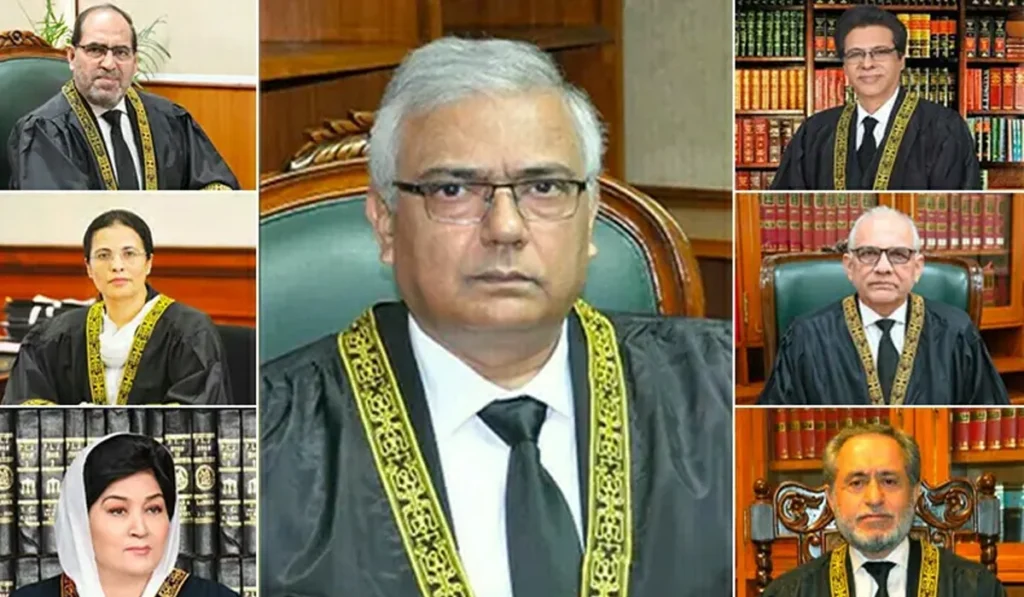In a landmark decision, the Supreme Court’s eight-member constitutional bench, headed by Justice Aminuddin Khan, has approved live streaming of the proceedings in the case challenging Pakistan’s 26th Constitutional Amendment. The move marks a major step towards judicial transparency, as the hearings will now be broadcast live for the public.
The 26th Constitutional Amendment, passed by both houses of Parliament in October 2025, has ignited an intense national debate over the independence of the judiciary. The amendment abolished the Supreme Court’s suo motu powers, limited the chief justice’s tenure to three years, and granted the prime minister the authority to nominate one of the three senior-most judges as the next chief justice. It also led to the creation of the current constitutional bench that is now hearing petitions against the same amendment.
The amendment is being challenged by multiple petitioners, including high court bar associations, the Pakistan Tehreek-e-Insaf (PTI), and other legal bodies, who argue that it undermines the judiciary’s autonomy. The Supreme Court approves live streaming in 26th Amendment case as a way to ensure public access to critical constitutional debates that directly impact Pakistan’s democratic structure.
The eight-member bench comprises Justices Jamal Khan Mandokhail, Muhammad Ali Mazhar, Ayesha Malik, Syed Hasan Azhar Rizvi, Musarrat Hilali, Naeem Akhtar Afghan, and Shahid Bilal Hassan. During Tuesday’s proceedings, key discussions revolved around three major points: forming a full court, objections to the current bench, and the demand for live broadcasting.
Justice Aminuddin Khan began by stating that arguments regarding the formation of a full court and bench objections would be heard first, while the live-streaming issue would be addressed later. However, after detailed arguments, the bench approved the request for live broadcasting and adjourned further proceedings until Wednesday, October 8.
Advocate Khawaja Ahmad Hasan argued that the debate on the full court should be public and that live streaming would ensure transparency. Barrister Salahuddin Ahmed echoed this sentiment, saying the amendment was “passed under the cover of darkness” and that the public deserves to know the facts.
Justice Jamal Mandokhail remarked that while live streaming was meant to educate the public, “it has also exposed us.” Meanwhile, Justice Ayesha Malik questioned Additional Attorney General Aamir Rehman about the government’s position on live streaming. Rehman replied that it was an administrative matter, to which Justice Muhammad Ali Mazhar responded, “So you agree with whatever the bench decides?”
Petitioners are urging the court to nullify the entire amendment if it is proven that Parliament’s two-thirds majority vote was not conducted freely. They argue that the changes compromise judicial independence, especially regarding the appointment and tenure of the Chief Justice, judicial reviews, and bench formations.
Additionally, they seek to strike down the Supreme Court (Practice and Procedure) Act 2024 and the Supreme Court (Number of Judges) Amendment Act 2024, contending that both stem from an unconstitutional amendment.
The Supreme Court’s decision to allow live streaming is being seen as a win for transparency and public accountability. The final verdict on the amendment’s constitutionality, however, remains to be seen.

